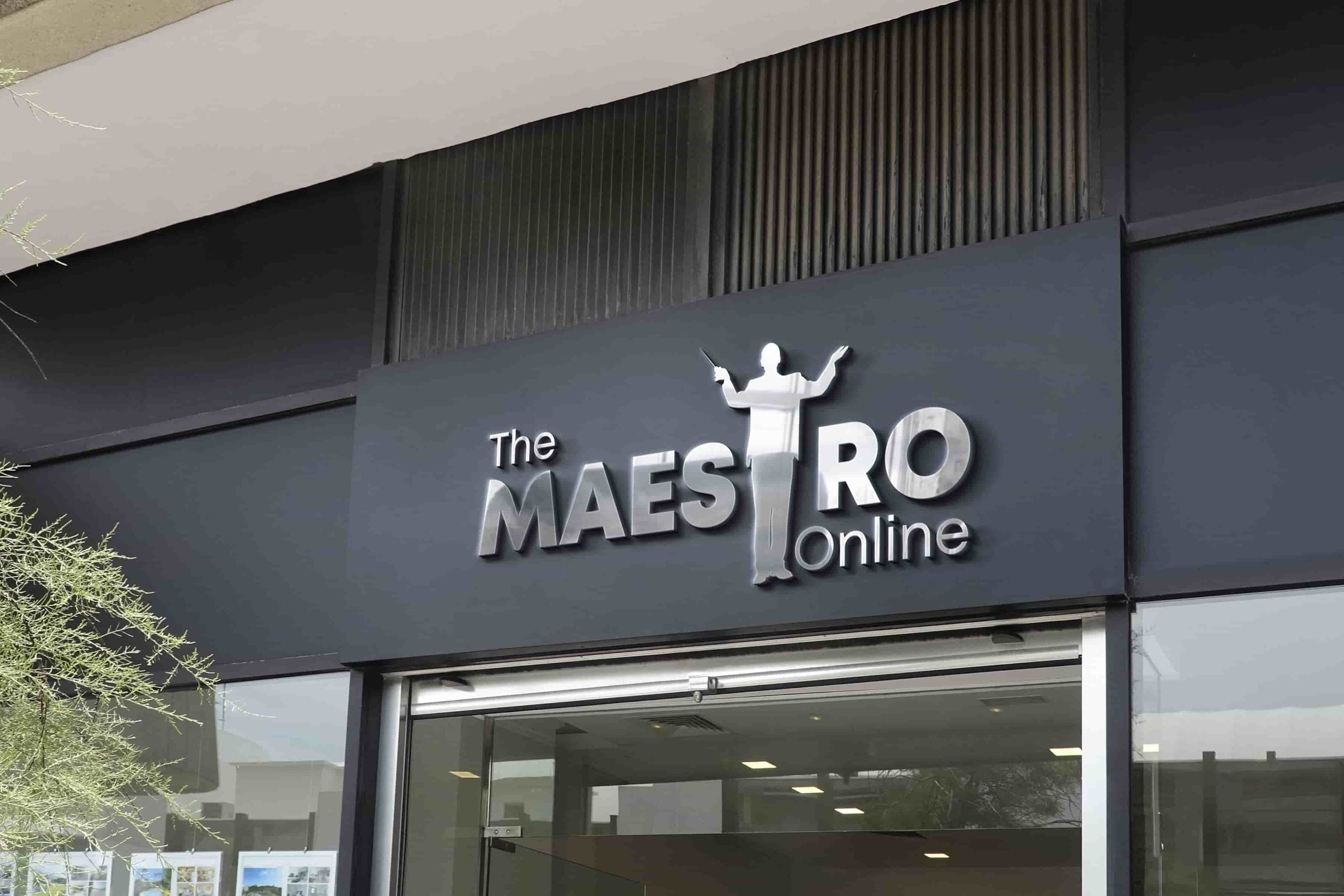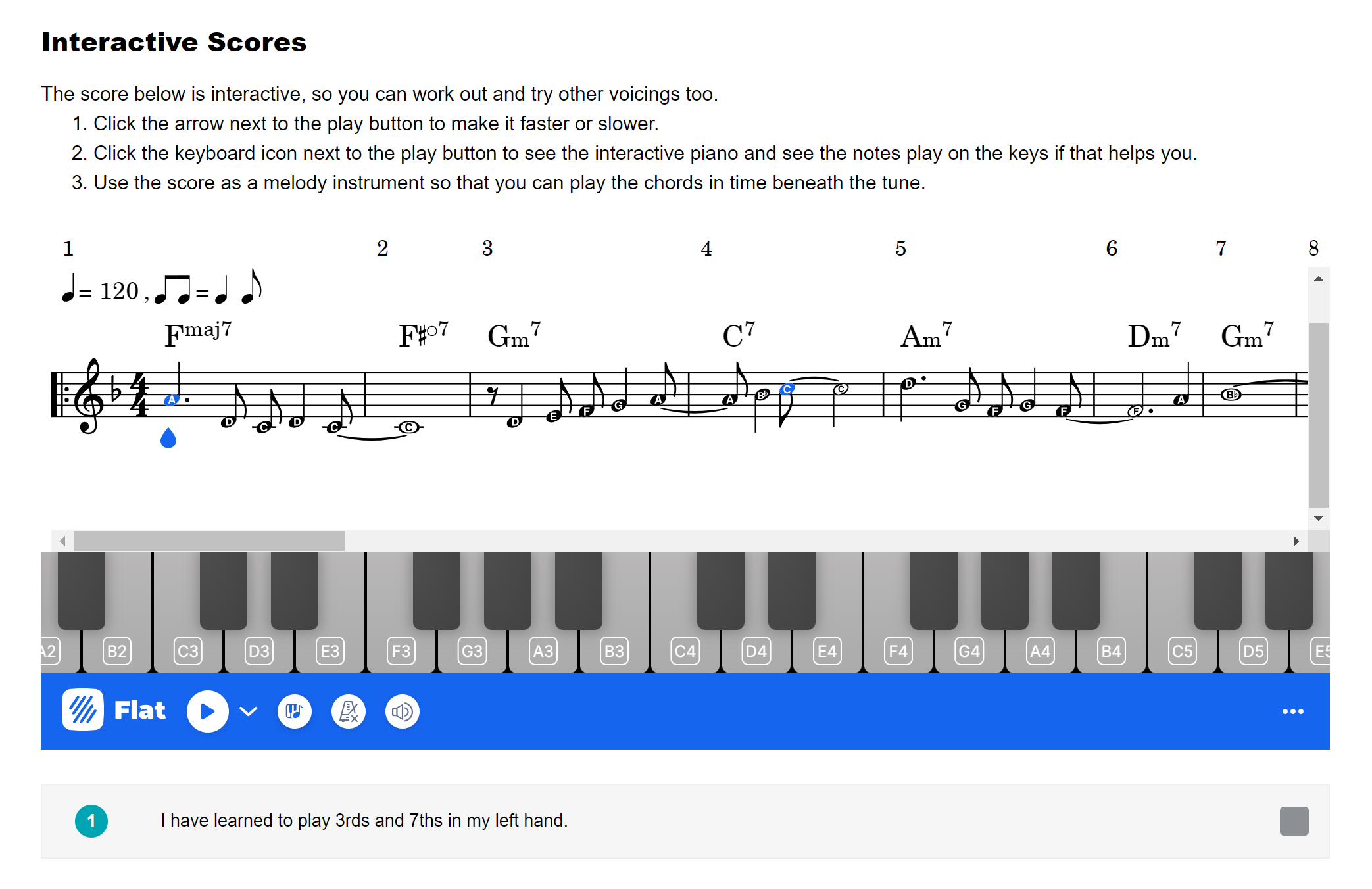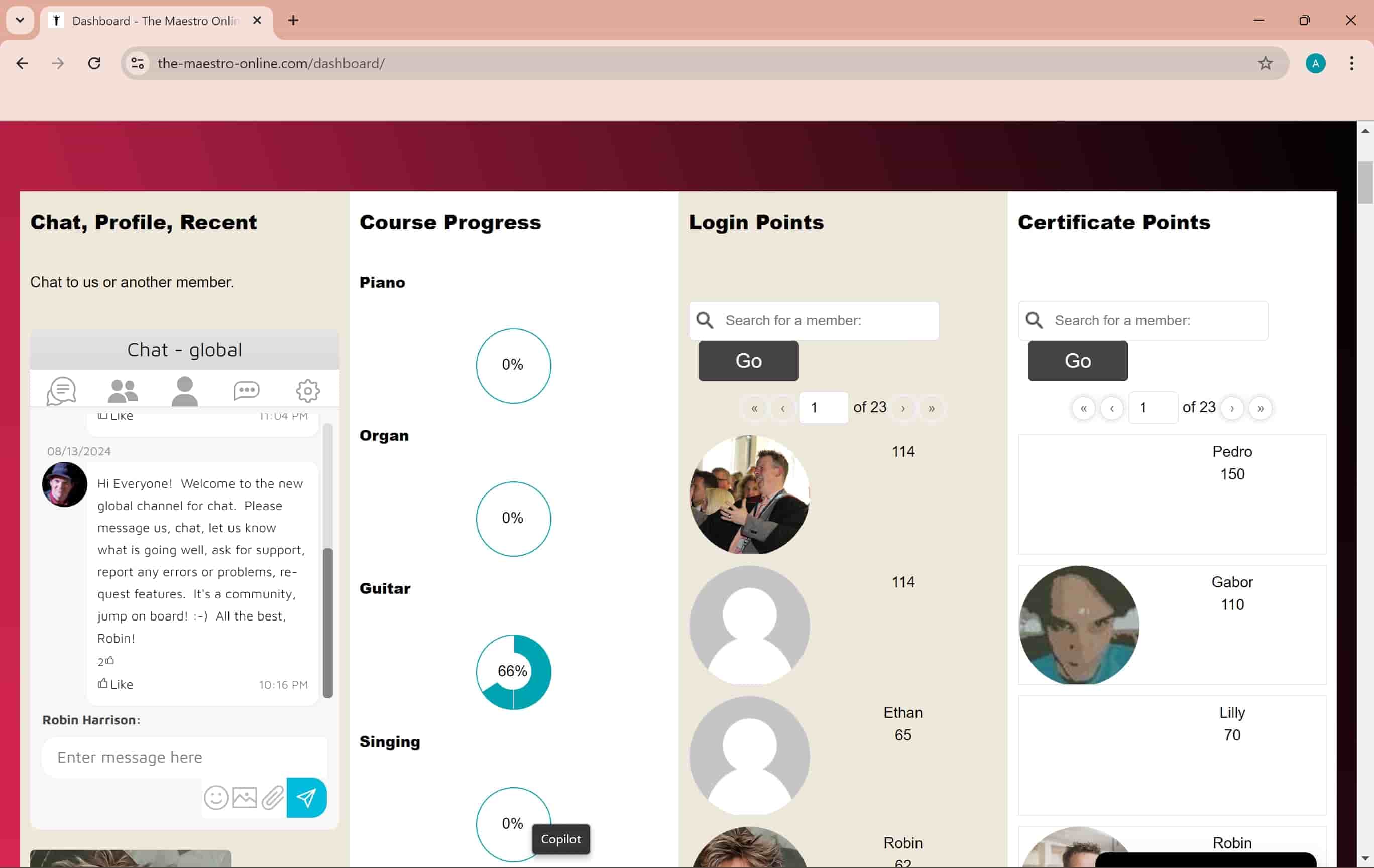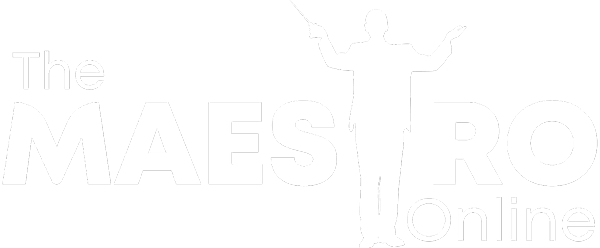The Maestro Online
Hub, School, University, College Music Course Partnership

What is the Maestro online?
According to its users The Maestro Online is “unlike anything else I’ve seen”, “revolutionary” and “like three months of lessons in one magazine”. Launched in 2021 at the height of the pandemic, the website uses digital resources that can support a learner’s musical development. Dr Robin Harrison is keen to collaborate with individual learners and whole organisations to help ensure that their musical learning is as engaging as it can be.
Who is Dr Robin Harrison?
The Maestro Online was founded by Dr Robin Harrison, a former academic tutor at the RNCM, Head of Music, Director of Music and Manager of Performing Arts across schools teaching learners from Nursery to Year 13. He has also always had a healthy freelance portfolio as a classical musician, a jazz pianist (ex No. 1 in UK and 33 globally), singing, piano and organ teacher, choral director, a Royal College of Organists Academy teacher and as a diploma examiner.
Why did you start The Maestro Online library of courses?
There were several clear gaps in the market that needed to be addressed and I have an enormous thirst for evolving pedagogy:
a. The courses are a way to support a learner with skills like “performing musically” and displaying great “musicianship”. The courses don’t teach entire songs with full printed sheet music or replace 1-1 learning, they enhance it. Courses enable students to gain better marks in grade examinations, by becoming more rounded musicians. They help deepen a person’s relationship with music and learning.
b. Those that sign up for online courses in general, particularly apps, seem to really enjoy their independent learning and progress well at the beginning. Inevitably there is a point at which they need some assistance. Having a real person offering zoom and email support behind courses is more than most apps can do.
c. Apps can have a huge bank of songs, but what if you have an area that you need a course on? Library members can request their own courses.
d. Independent learning has always been at the core of our most successful students and lockdowns encouraged this further. This aspect of learning is crucial for musicians and something that to maintain and further develop, not lose.
e. There are few structured improvisation courses that teach musicianship and understanding through playing (renaissance/baroque/classical and rock/pop/jazz). But we offer this.
f. In this day and age, why should learners explore the world of ‘sound’ through just ‘visual’ (books). Why not have digital books with integrated teaching videos that pop up on each page, combining the best of both worlds?
g. Parts of the courses are solfège/Kodaly inspired, but incorporate, and grow out of, more relevant material for a broader range of ages and cultures.
h. There need to be highly structured courses for advanced skills too, such as transposition and improvisation at diploma level. The majority of apps and courses target the beginner only. We can offer support for a learner whole musical journey.
How can Music Maestro Online help learners to develop their musical skills?
The courses start by developing the ear through snippets of famous popular songs/tunes. Classical musicians are often in awe of session musicians that simply sit down and play, yet those session musicians often wish they could follow the dots a bit more too.
Both skills are useful. Many learners wishing to enhance their musicianship and ‘polish’ their performances need more of the session musician qualities alongside a deeper understanding of the musical theory and structure within their repertoire. Music Maestro Online offers engaging ways to develop essential high-level musicianship skills.
How could a learner supplement their in-person music tuition with Music Maestro Online?
Members of the library supplement their in-person music tuition by having access to all courses. They have the opportunity to become more creative, more experimentally, deepen their understanding of music in general and to become confident creators of music and not just recreators.
How can Schools, Colleges or Universities use Music Maestro Online?
Individuals can join the library as individuals via www.the-maestro-online.com. However, larger organisations may well wish to collaborate and Robin writes courses in conjunction with schools and music hubs according to their specific needs, from primary school solfège Kodaly based skills using more modern relevant repertoire, to advanced courses in keyboard harmony, Baroque and Classical improvisation and more. Courses are created bespoke to individual needs and then special packages created, bespoke, as a partnership. Costs are adapted accordingly, such that it might be the student that pays to become a member of the library and the hub, college or university therefore has no ongoing cost implication but has a much broader digital offering. Any hub wishing a free pass to the library to view the content is always welcome.
Enquiries can be made via the website www.the-maestro-online.com or below.
Ear Training & Solfege for Musicians
Ear Training & Solfege Courses for Musicians
Our Ear Training Courses are inspired by a famous musicianship teacher called Kodaly and use a system that uses the Do-Re-Mi method (called "solfege").In our experience, learners progress incredibly quickly with this method.
These are focused specifically on ear training, from exam sight-singing leading right up to diploma level. Unlike traditional Kodaly Method courses, they don't use tunes designed for 4-11 year olds, but rather more mature rock-pop and classical melodic snippets.
There are 2 sections. The first section focuses purely on your ear and skills. The second section includes written music notation for those who wish to sight-read or sight-sing.
Ear Training - training your ear, sing in tune with musicianship.
- Learn your Do-Re-Mi: Introduction to Solfege. Learning the different pitches and hand-signs and refine your ear
- Practice Do-Re-Mi with Famous Pop Songs: Consolidating Pitches using snippets of famous pop/rock tunes to reinforce your learning.
- Decorate your tunes using melodic decorations: The “Oh When the Saints” Method.Apply appoggiaturas, turns and ornaments to a famous fun tune!
- Counterpoint (Weaving one tune on top of another): Taking familiar tunes and increasing your ability to cope with two things at once. Canons with immense fun!
- Chords & Harmonies: The Twinkle Twinkle method to Harmonic Success: Stack notes on top of each other! Chords & Cadences up to A Level, Undergraduate and Diploma Level. Even those dreaded Augmented 6ths!
- Modulation (Changing Key): Popular snippets take you to another key vocally, fab for Sight-Singing.Dominant, Subdominant, Relative Minor and Supertonic Minor on this journey!
- Modulation 2: Real World Bus Journeys: Use Popular Tunes applied to Classical Song. Simple steps allow you to analyse real world examples from Pop to Musicals to Classical.
2. Ear Training with Written Notes & Sight-Singing
- From Do-Re-Mi Solfege to Treble Clef: Taking what you've learned by ear and connecting it to what it looks like on the treble clef. Still using our famous popular melodic snippets.
- From Do-Re-Mi Solfege to Bass Clef: Taking what you've learned by ear and connecting it to what it looks like on the bass clef. Still using our famous popular melodic snippets.
- Sight-Singing Treble Clef: Now taking our famous popular melodic snippets and using techniques to help us sight-sing tunes that we haven't seen before in treble clef.
- Sight-Singing Bass Clef: Now taking our famous popular melodic snippets and using techniques to help us sight-sing tunes that we haven't seen before in bass clef.
- Grade 1 ABRSM Sight-Singing: Applying what we have learned using the ABRSM Grade 1 Sight-Singing criteria.
- Grade 2 ABRSM Sight-Singing: Applying what we have learned using the ABRSM Grade 1 Sight-Singing criteria.
What are Our Music Masterclasses Like?
Our music masterclass courses are self-study digital courses embedded with information, interactive music software (scores), exercises, objectives, tasks, progress tracking, teaching pedagogy and videos of celebrities and international level musicians explaining and demonstrating key skills. Certificates are awarded at the end of each course.
Our community is also evolving and we have a chat feature so that you can contact us whenever you need help and can make other musical friends.
A Quick Look at a Typical Masterclass Course
Sample Interactive Score

Course Dashboard with Chat, Progress and Points
This product is a monthly subscription product.
Our No-More-Autotune singing courses are also included within your subscription.
For more details of our No-More-Autotune courses visit our Singing Lessons Online page.
Bundled in this package are our piano and organ courses which are all connected with the ear and embed proper theory instruction through practical playing.



